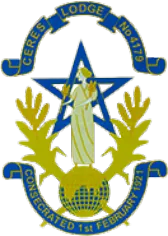W Bro Paul Gardner’s reflections on the pandemic
As weeks turn into months, it seems the terminology is wearing thin as the COVID-19 pandemic continues to headline in the media.
Some are asking ‘what is a key worker’ and ‘what is the front line?’. I can answer that having previously had a career spanning 30 years in the NHS Ambulance Services and with family members also on the front line, I know what it looks like. It is challenging and stressful, and those who work on it are committed and vulnerable to risk and danger.
Open to debate is the value of traditional and social media hype searching for the latest angle or levelling criticism and blame at the authorities for many aspects of the fight to contain the virus. But the outstanding factor is the recognition of the NHS, its staff and their acknowledged hero status. The ten-week Thursday evening ‘clap for carers’ and the army of volunteer support workers will, I hope, be long remembered in the hearts of the nation.
Looking beyond the doctors, health and social care staff who stepped forward with medical interventions and when unsuccessful offered solace in death, perhaps the forgotten cohort is the funeral staff called upon when it is time to say goodbye. The nature of this sector is mainly part-time sessional workers, who are often vulnerable due to their age, but all working diligently. They are certainly key workers, perhaps best described as ‘behind the front line.’.

As a funeral professional, I experience the difficulties of grieving families wishing to memorialise with friends, but having to deal with attendance and distancing restrictions at crematoria limiting such to minimal numbers. Fortunately, as time went on, technology gave some relief as live streaming facilities became available. For the faithful this is further exacerbated by the ceasing of church services adding to their distress and leaving only sparsely attended graveside ceremonies as the burial option. These circumstances have to be handled sympathetically by the funeral director, none more so than for ethnic communities, where ritual cleansing practices have been hardest hit and the customary community gatherings impossible.
All have had to adapt to new streamlined administration and death certification that removes the next of kin further from the procedure. Unsurprisingly, the amount of direct cremations bereft of any relatives attending has increased dramatically. Compounding the situation is the interpretation – or over-interpretation – of changing government guidance, all of which adds to the grief of these personal family tragedies.
Fortunately to date, the overflow mortuaries and temporary facilities have been little used, after being quickly erected with the efficiency and support of the military. Not quite as newsworthy as the Nightingales, however, they stand ready for any resurgence of the virus.
Along with my colleagues, I find these strange and challenging times but, with British fortitude, everyone is coping. With goodwill, undoubtedly key workers and everyone can emerge in a better place. Certainly, the country owes our key workers a debt of gratitude and their wholehearted thanks, especially those who put themselves at risk daily. ‘Heroes’ may be an appropriate epithet, even if it’s not sought. I sometimes worry about the mental wellbeing of my colleagues and for my part I know where to turn for support – the local masonic Lodges, frequented by helpful chaps of sterner stuff in stripes.
Having said I was a career NHS Ambulance Services officer for 30 years in London and the shire counties, I now work on a freelance basis in the bereavement care sector and have done so for over 20 years. Mainly unseen, my wide variety of work involves bearing, directing and conducting civil ceremonies, along with 24/7 removals from nursing and care homes, hospices and private residences.

Throughout this crisis, my biggest concern has been collecting from nursing homes as it is often unknown what might be encountered in terms of infection control. The use of personal protection (PPE) and observing sanitation procedures become paramount especially if Corona virus is suspected. Fortunately, no harm has been suffered by me or my colleagues; although some have shielded during the worst time to protect themselves or family, they are, in fact, remaining for the most part healthy and fit.
Additionally, in this crisis I also volunteer ‘on-call’ for civil services at the local crematorium and green burial ground without emolument, as my modest contribution to the community. I can’t, in all conscience, see anyone leaving this life without a few words of goodbye. Sadly, this pandemic looks to have a long way to run and life norms and priorities and expectations may have to change.
As an active freemason for over four decades, especially in London with the Visiting Officer scheme, and despite having moved to Bedford over 30 years ago, I still manage to get back to my Mother Province of West Kent several times a year. Similarly, along with many visitors I attend from time to time Acacia Lodge No 3436 for Funeral Operatives. It is a well-supported affinity lodge meeting at Mark Masons Hall, London. They welcome country-wide initiates, joiners and visitors and are known for their ebullient Festive Boards.
As my reflections here draw to a close, I find myself pondering the masonic tenet of ‘relief’, which remains foremost in my mind with my work in these distressing times. I am particularly forlorn when dealing with a funeral for a masonic Brother I knew but equally for a Brother I didn’t. May they, and all those who have succumbed, rest in peace and let their nearest and dearest know that with departed merit – their work is done!


This article is part of the Arena Magazine, Issue 42 October 2020 edition.
Arena Magazine is the official magazine of the London Freemasons – Metropolitan Grand Lodge and Metropolitan Grand Chapter of London.
Read more articles in the Arena Issue 42.

